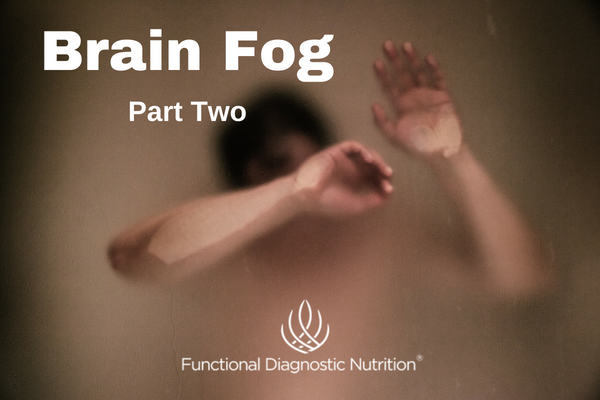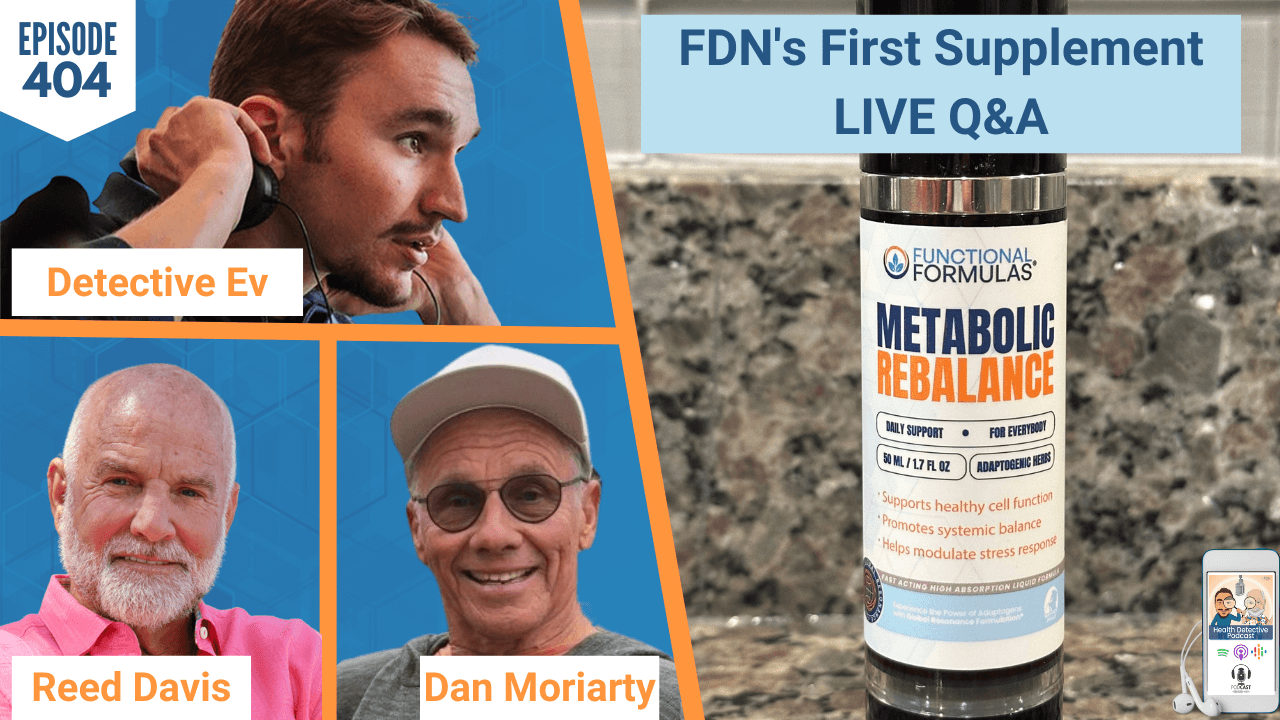(Did you miss Part 1? Read it here!)
Brain fog affects millions of people of all ages.
It is true that age is a contributor to cognitive decline. However, those “senior or spacey moments” actually have less to do with the number of years you’ve been on the planet than they do with your overall health.
This troublesome lapse of cognitive ability is a condition called brain fog.
What is Brain Fog?
Brain Fog is not a disease or disorder. It is a condition of cognitive dysfunction. In other words, the brain is not working correctly. This doesn’t have anything to do with a person’s intelligence or IQ. That foggy-headed feeling is simply the expression of one or more imbalances within the body.
Some common symptoms of brain fog include:
- Lack of focus and concentration
- Confusion and disorientation
- Short term memory loss
- Trouble “finding words” when speaking
- Feeling detached, disconnected, or spaced out
If that wasn’t bad enough, there are many additional symptoms that often accompany brain fog:
- Allergies, acne, blood sugar dysregulation,
- sleep disorders, headaches, digestive issues,
- fatigue, lethargy, inflammation, asthma,
- restless leg syndrome, low sex drive,
- PMS, irregular cycles depression, anxiety,
- emotional fragility cholesterol problems,
- weight issues and more!
Brain fog can make it difficult to complete daily tasks, threaten your performance at work, and take a toll on your relationships. If not properly addressed, brain fog can be progressive, becoming even more debilitating over time.
You need to know what’s causing your foggy head if you wish to improve it. You may find some of the causes as well as the solutions very surprising. Click here to learn more about what causes brain fog.
Brain Fog Busters
Adopt these few very basic, low-cost lifestyle changes, and you will be on your way to a fog-free future.
We understand that dietary advice has gotten ridiculously complicated. People suffering from brain fog need to keep it simple. So here you go.
- EAT REAL FOOD Just remember these three simple words and you will be on your way to a healthier brain (and body). Minimize consumption of packaged and processed foods. Eating real food will automatically eliminate common food additives that are known neurotoxins. Things like MSG, aspartame, and hydrolyzed vegetable oil are some of the most commonly consumed brain “poisons” and are lurking in many popular packaged foods and beverages.
Avoid Wheat, Corn, Soy, and Dairy. These four foods are the most common food allergens and may be contributing to your cognitive dysfunction.
Gluten, in particular, has been linked to memory loss and cognitive decline, so even if you don’t have any digestive issues, it may be attacking your brain. Although wheat, corn, soy, and dairy are the most commonly allergenic foods, 67% of the calories in the Standard American Diet come from these foods.
Eat Fat Healthy fats like coconut oil, grass-fed organic beef, and free range egg yolks are necessary for protection and maintenance of your brain. Don’t forget, outside of water, your brain is mostly made up of fat.
- Water. Drink it! Over 60% of your brain is water. Almost every function in the body depends on the efficient flow of liquid and hydration at a cellular level. Water is needed for the transport of hormones, chemical messengers, and nutrients.Drink at least half your bodyweight in ounces per day. If you weigh 200 lbs, drink 100 ounces.
- Breathe. Breathe deeply. Unlike other cells in the body, the brain is extremely vulnerable to changes in oxygen supply. After just 5 minutes of oxygen deprivation, brain cells will begin to die. When under stress, people tend to take short, shallow breaths which creates a situation of air deprivation for the brain.Practice mindful deep breathing when stress arises.
- Sleep. Sleep is critical to the way your brain works in both the short and the long-term. If you have ongoing problems with sleep, just overcoming insomnia is a potential brain fog cure. While you sleep, your brain cleans and organizes information and well as generates brand new brain cells.Hit the sack by 10 pm and get at least 7-8 hours of quality sleep.
- Mind Control With the complicated, overlapping symptoms that fall under the umbrella of “brain fog” it’s easy to jump to the conclusion that you are losing mental abilities. It is a common notion that as we age our brains lose function. It doesn’t have to be the case. Brain fog is not a fixed state and changes depending on how we treat ourselves and our bodies – for better or worse. This is true for people of all ages, whether you have a clinical condition or not. So put your mind over matter and take action.
Symptoms such as brain fog are common, but not normal. Cleaning up your habits and lifestyle as suggested above are important, but perhaps it’s time to talk to an FDN Practitioner about a full assessment and some specialized lab tests — and lose those hazy headed moments for good.
Brain Fog Part 1 Click Here







